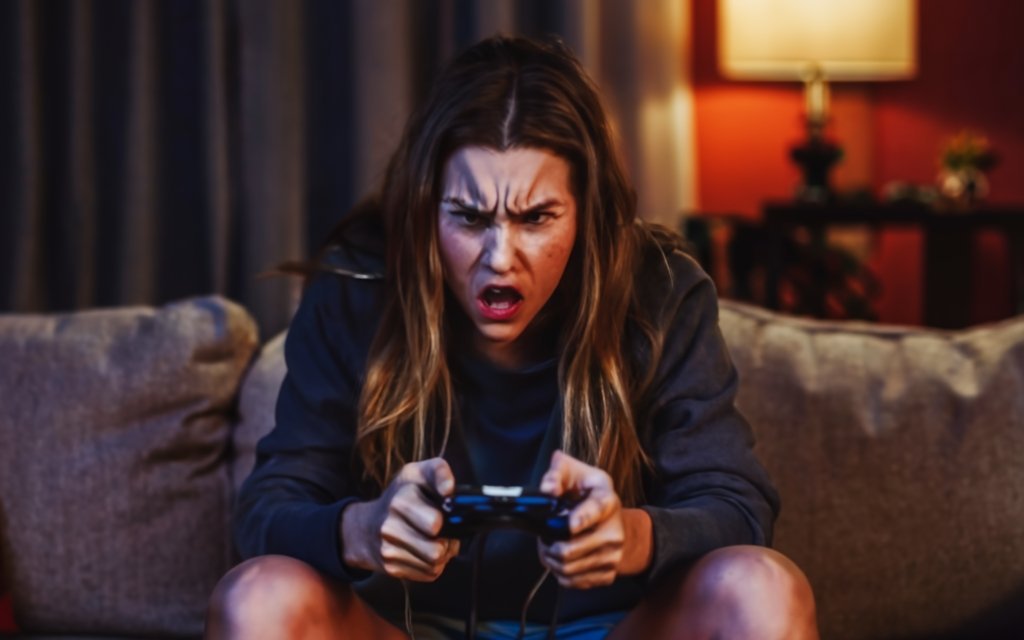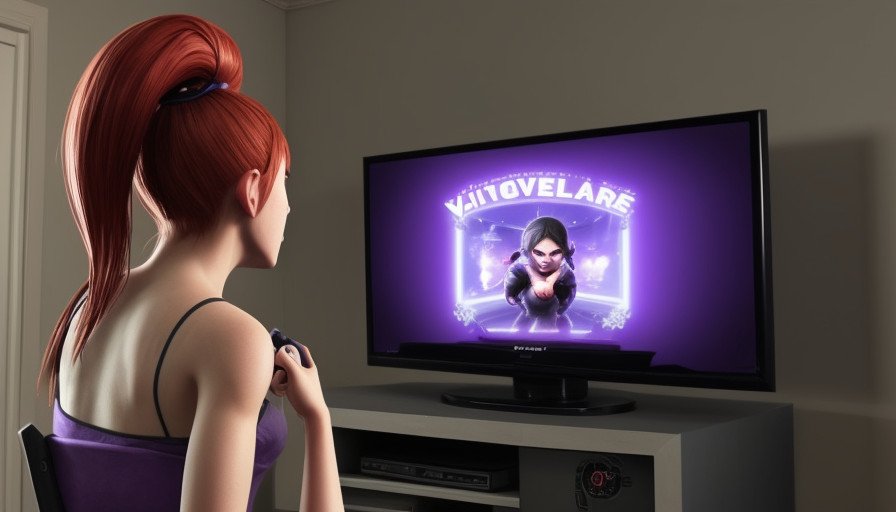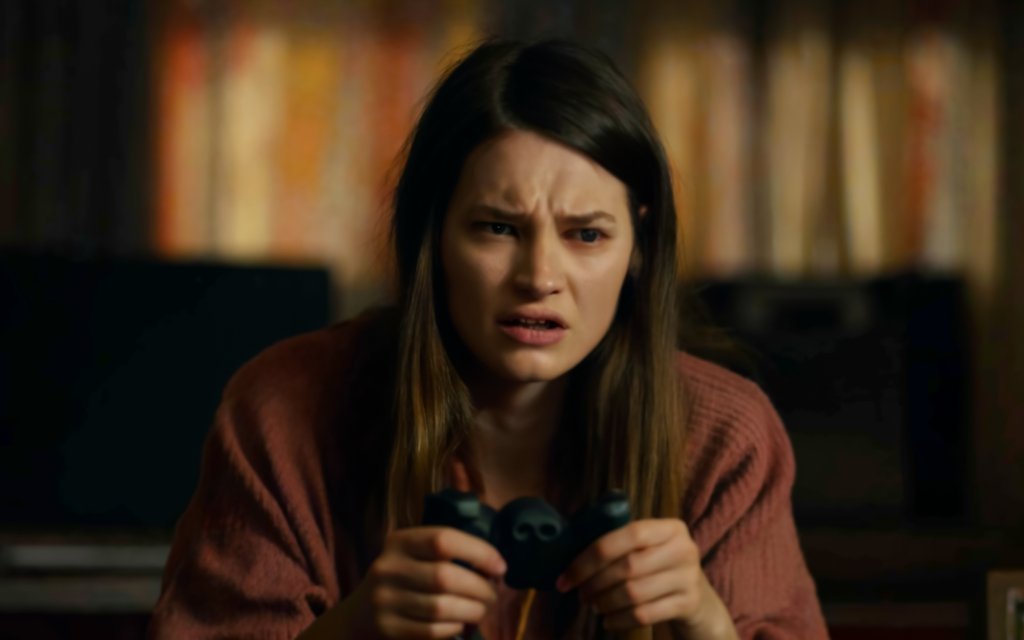The link between video games and domestic violence is a complex and controversial issue with no simple answer. Research on the topic has produced mixed results, making it difficult to draw definitive conclusions.
Here’s what we know:
- Correlation is not causation: While some studies have found a correlation between exposure to violent video games and increased aggression in certain individuals, this does not necessarily mean that playing video games directly causes domestic violence. Other factors, such as existing psychological predispositions or exposure to real-world violence, could also play a role.
- Individual differences matter: People react differently to video games. Some individuals may be more susceptible to the potential negative effects of violent content than others.
- Other factors contribute to domestic violence: Domestic violence is a complex issue with multiple contributing factors, including social, economic, and personal circumstances. Attributing it solely to video games would be an oversimplification.
Therefore, it’s important to avoid making broad generalizations about the impact of video games on domestic violence. Instead, we should focus on:
- Promoting healthy gaming habits: Encourage responsible gaming practices, such as setting time limits and taking breaks. Open communication between parents and children about gaming content can also be helpful.
- Addressing the root causes of domestic violence: Efforts to combat domestic violence should focus on addressing the underlying social and individual factors that contribute to it, rather than solely blaming video games.
Remember, correlation does not equal causation, and individual differences matter. Attributing complex issues like domestic violence to a single factor like video games is an oversimplification.
Let’s focus on promoting healthy gaming habits and addressing the root causes of domestic violence to create a safer and more supportive environment for everyone. After reading this article, ou should consider reading another article i wrote about >>>> Do Video Games Affect Your Emotions? to learn more.
I. The Pixelated Maze: Unraveling the Video Game and Domestic Violence Connection
Yo, fellow gamers! Let’s dive into the murky waters of a question that’s been plaguing us since Pong first bleeped its blips: do video games, specifically violent ones, fuel real-world domestic violence?
It’s a complex debate, often fuelled by headlines and soundbites, but as your friendly neighborhood expert (okay, maybe more like the neighborhood gremlin who lives in your router), I’m here to help navigate the pixelated maze of evidence and shed some light.
First things first, let’s smash the simplistic “games cause violence” trope. Research is all over the map on this one. Some studies show a correlation between violent game exposure and increased aggression, like that time I totally raged after losing a battle royale… for five minutes. But here’s the catch: other studies find no direct link, leaving us scratching our virtual heads.

Think of it like this: imagine your brain as a sprawling RPG map. Violent games might be like combat zones, spiking your aggression stat for a bit. But that doesn’t mean you’re destined to become a real-life orc. Other factors, like your personal skill tree (personality traits, mental health) and the surrounding environment (family life, social context) play a massive role in determining your final stats.
II. The Nuke Button: When Pixels Pack a Punch (But Maybe Not the Kind You Think)
While a direct cause-and-effect link seems shaky, here’s the thing: some aspects of violent games can pack a punch, even if it’s not a literal, fireball-throwing kind.
Desensitization: Remember that scene from “A Clockwork Orange” with the Korova Milk Bar? Yeah, violent games can numb you to aggression, making real-world scuffles seem less jarring. Think of it like repeatedly pressing the “skip cutscene” button on violence in the game; eventually, you might skip it in real life too. Not cool.
Aggression Boost: Ever felt your blood pressure spike after a particularly brutal boss fight? Turns out, violent games can temporarily crank up your aggression meter, like chugging virtual rage juice. While it usually fizzles out quickly (thank goodness for in-game respawn points!), it’s something to be aware of, especially if you’re already prone to hotheadedness.
Copycatting Mayhem: We all learn by example, and games, even violent ones, offer lessons. The problem is, sometimes the lesson learned is “punching solves everything.”
This is especially true for younger players who haven’t fully developed their conflict-resolution skill tree. Imagine a kid blasting through hordes of digital enemies and then trying to apply those tactics to a sibling squabble – recipe for pixelated disaster.
So, there you have it, folks. The answer to “do games cause domestic violence?” isn’t as simple as a “yes” or “no.” It’s a tangled web of influences, individual factors, and real-world contexts. But hey, that’s what makes this whole debate so fascinating, right?
Buckle up, grab your pixelated popcorn, because in Part II, we’ll explore the counter-arguments, delve into positive aspects of gaming, and discuss how we can all game responsibly and build a healthier digital (and real-world) community. Stay tuned!
III. Counter-Punching the Myths: Beyond the Pixelated Punchline.
Hold on, trigger-happy heroes, before we declare all action games domestic violence simulators, let’s throw some counter-punches at these pixelated myths:
Myth #1: Games are the ultimate villain. Nope, just like in real life, the blame game ain’t that simple. Domestic violence is rooted in complex social and individual factors like unequal power dynamics, mental health issues, and unhealthy relationship patterns. Blaming pixels is like accusing the controller of making you drop the ball game – it’s the player’s grip that matters.

Myth #2: Every gamer becomes a barbarian. Newsflash: humans aren’t NPCs programmed to blindly copy in-game actions. Most players can differentiate between virtual brawls and real-world conflict.
In fact, studies show games can even improve problem-solving skills and social interaction. It’s all about responsible play and understanding the difference between “pew pew” and “pow pow” in real life.
Myth #3: Parents are powerless against pixels. Hold your joystick, parents! You’re not just sidekicks in this quest. Open communication is your ultimate weapon. Talk to your kids about game content, set reasonable limits, and encourage a healthy variety of activities. Remember, a balanced life is a game-winning strategy.
Table: Debunking the Pixelated Punchline
| Myth | Reality |
|---|---|
| Games are the sole cause of domestic violence. | False: Domestic violence has complex roots beyond mere game exposure. |
| All gamers become violent. | False: Most players can distinguish between fantasy and reality. Games can even have positive impacts. |
| Parents are powerless against violent games. | False: Open communication, setting limits, and encouraging diverse activities are powerful tools for parents. |
IV. Level Up: Building a Healthier Gaming Ecosystem.
Okay, champions, the quest isn’t over! Here’s how we can all level up and build a safer, more responsible gaming ecosystem:
• Research, not rage: Let’s encourage more scientific studies on the real impact of games, instead of fueling internet rage with biased studies and clickbait headlines. Knowledge is power, even in pixelated worlds.
• Parental party time: Parents, join your kids on their gaming adventures! Play together, discuss content, and make gaming a bonding experience instead of a battleground. You might even discover hidden talents (and controllers) along the way.
• Diversify the dungeon: Don’t let violent games monopolize the screen. Encourage a variety of genres, from peaceful puzzle games to creative sandbox adventures. Remember, a balanced gaming diet is key to a healthy digital life.
• Address the real monsters: While we tackle pixelated aggression, let’s remember the true villains – unequal power dynamics, toxic masculinity, and unhealthy societal norms. Fighting for social justice and promoting healthy relationships are the ultimate quests when it comes to ending domestic violence, both on and offline.
So there you have it, fellow gamers! This ain’t a boss fight with a simple “defeat all enemies” objective. Understanding the complexities of the video game and domestic violence connection is a continuous quest that requires research, open communication, and a commitment to responsible gaming. Let’s work together to build a healthier digital and real-world community, one pixel at a time. Cheers, and happy gaming!
V. Victory Lap: Rejecting the Binary, Embracing Nuance.
Alright, adventurers, let’s take a victory lap on this complex quest. We’ve deconstructed the simplistic “games cause violence” narrative, delved into the pixelated punches and counter-punches, and leveled up our understanding of responsible gaming. Now, it’s time to claim the ultimate loot: nuance.
This ain’t a black-and-white world where every pixelated punch translates to a real-world haymaker. The truth shimmers in the gray areas, in the intricate tapestry of individual factors, social contexts, and the evolving landscape of game content. Blaming pixels is convenient, but it’s a lazy solution to a multifaceted problem.

Instead of painting all violent games with the same brush, let’s wield the brush of critical thinking. Analyze game content, discuss its potential impacts, and encourage responsible choices.
Remember, players aren’t blank slates; they come with their own experiences, vulnerabilities, and strengths. Judging individuals based solely on their gaming habits is like judging a book by its cover art – inaccurate and often unfair.
VI. Quest Complete: Building a World Beyond the Pixels.
The final boss of this adventure isn’t a pixelated dragon, but the persistent societal attitudes that normalize violence and neglect its root causes. Our ultimate quest extends beyond the screen, into the real world where we must:
• Champion social justice: Fight against inequality, toxic masculinity, and unhealthy power dynamics that breed violence in all its forms. Remember, a just society is a safer society, both online and offline.
• Prioritize mental health: Promote access to mental health resources and foster open conversations about emotional well-being. A healthy mind is a resilient mind, better equipped to navigate the complexities of the digital and real world.
• Nurture healthy relationships: Encourage communication, respect, and conflict resolution skills. Strong, supportive relationships are the ultimate shields against all forms of violence, in games and beyond.
This final stage of the quest requires collaboration, not competition. Let’s join forces – gamers, parents, researchers, policymakers, and everyone in between – to build a world where pixels entertain, not endanger. Where games are enjoyed responsibly, relationships flourish, and violence becomes a pixelated ghost of the past.
Remember, every action, every conversation, every conscious choice is a point earned in this ongoing quest for a safer, more just world. So, keep exploring, keep learning, keep gaming responsibly, and together, we’ll write a happy ending to this complex story. Now, go forth, champions, and make the real world a game worth playing!
VII. Bonus Round: Pixelated Power-Ups for Responsible Gaming
Alright, heroes, before we log out, let’s grab some bonus power-ups for responsible gaming! These handy tips will help you navigate the digital landscape with confidence and avoid pixelated pitfalls:
- Know your limits: We all have different thresholds for intense content. Be mindful of how games affect you, and don’t hesitate to take breaks or switch to something calmer if things get too heated. Remember, self-awareness is your superpower!
- Talk it out: Gaming shouldn’t be a solitary quest. Share your experiences with friends and family, discuss game content openly, and seek support if you encounter anything troubling. Communication is the ultimate shield against negativity, both online and offline.
- Variety is the spice of life (and gaming): Don’t get stuck in a single genre. Explore different types of games, from peaceful puzzlers to creative sandbox adventures. A diverse gaming diet keeps things fresh and prevents burnout.
- Remember, it’s just a game: Don’t let virtual victories or defeats define your real-world worth. Games are for fun, not validation. Keep things in perspective, and don’t let pixelated achievements overshadow your real-life accomplishments.
- Be a positive player: Spread the good vibes! Help others, promote sportsmanship, and stand up to toxic behavior online. Remember, kindness is the ultimate cheat code for a better gaming experience for everyone.
These power-ups are just a starting point. Feel free to experiment, find what works best for you, and share your own tips with others. Remember, responsible gaming is a collaborative effort, and every player has a role to play in creating a safer, more enjoyable digital world.
VIII. Game Over: The Final Boss of Misinformation.
Okay, champions, before we truly log out, let’s slay the final boss of this adventure: misinformation. Remember, the internet is a battlefield of opinions, and not all pixels are created equal. Here’s how to avoid falling prey to misinformation about games and violence:

- Check your sources: Don’t believe everything you read online. Be skeptical of clickbait headlines and sensationalized articles. Look for credible sources like scientific studies, reputable news outlets, and organizations specializing in gaming and mental health.
- Think critically: Don’t just accept information at face value. Analyze the evidence, identify biases, and consider alternative perspectives. Remember, critical thinking is your ultimate weapon against misinformation.
- Engage in healthy debate: Don’t be afraid to discuss different viewpoints, but do so respectfully and constructively. Avoid personal attacks and stick to the facts. Remember, open dialogue is key to understanding complex issues like the connection between games and violence.
- Spread the truth, not the fear: Share accurate information about responsible gaming and the dangers of misinformation. Be a beacon of knowledge and help others navigate the digital landscape with confidence. Remember, knowledge is power, and the power to combat misinformation lies in our hands.
By slaying the final boss of misinformation, we can build a more informed, responsible gaming community. Remember, the quest for a safer digital world is never over, but with every pixel of knowledge and every byte of critical thinking, we move closer to achieving a happy ending.
So, keep exploring, keep learning, keep challenging misinformation, and together, we’ll conquer the digital dragons and build a world where everyone can game safely and responsibly. Game on, champions!
Do video games cause domestic violence In Youth?
The link between video games and domestic violence is a complex and controversial issue, particularly when it comes to youth. It’s important to approach this topic with nuance and avoid simplistic explanations. Here’s a breakdown of what we know, focusing on safety and avoiding harmful claims:
1. No Direct Link:
- Research on a direct causal link between violent video games and domestic violence in youth is inconclusive. While correlations exist, other factors like family dynamics, mental health, and social-emotional skills play a significant role in shaping behavior.
2. Individual Differences:
- Youth react differently to video game content. Some may be affected by violent themes, while others are not. Personality traits, coping mechanisms, and real-life experiences all influence individual responses.
3. Responsible Gaming:
- The focus should be on promoting responsible gaming habits for youth. This includes setting time limits, choosing diverse game genres, encouraging open communication with parents/guardians, and prioritizing activities beyond gaming.
4. Addressing Root Causes:
- Domestic violence, in any form, is a serious issue with complex societal and individual roots. Addressing underlying factors like inequality, unhealthy relationships, and lack of conflict resolution skills is crucial in preventing it, regardless of video game exposure.
5. Focus on Solutions:
- Instead of solely blaming video games, let’s concentrate on positive solutions. Supporting youth through social-emotional learning programs, fostering healthy family communication, and promoting conflict resolution skills can contribute to a safer and more supportive environment for everyone.
It’s important to remember that:
- Violent video games are one of many factors that may influence behavior, not the sole cause.
- Individual differences and life experiences play a crucial role in how youth respond to any media, including games.
- Responsible gaming practices and open communication with adults are key to healthy digital habits.
- The focus should be on addressing the root causes of domestic violence and promoting positive solutions, not solely blaming video games.
By understanding these complexities and focusing on solutions, we can create a safer and more supportive environment for all young people, both online and offline.






